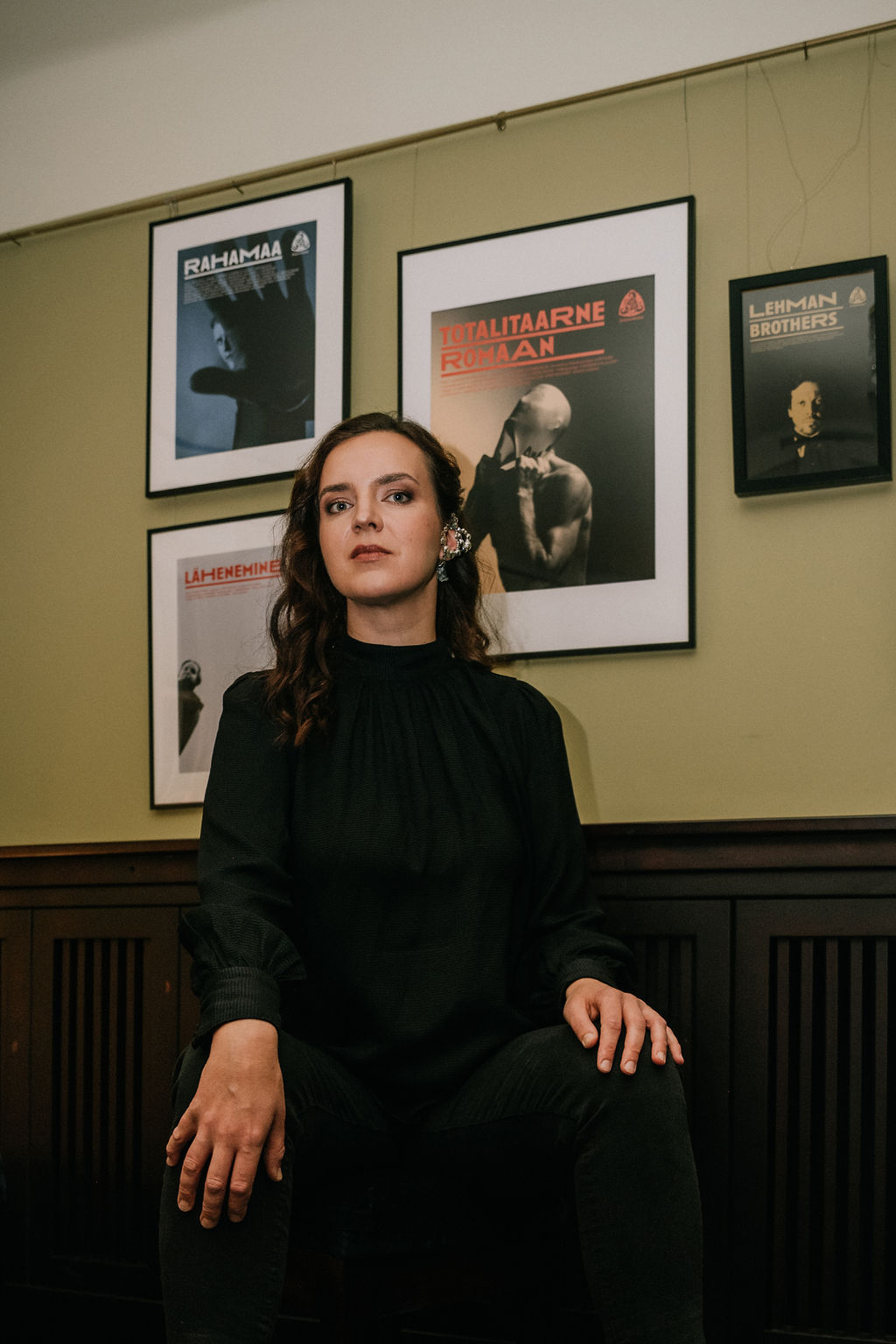Loreta Sindi interviews jazz pianist and composer Kirke Karja, who will perform Animal Image, a live music accompaniment to Perttu Saksa's documentary film, at the Kumu Auditorium on November 30th as part of the Jõulujazz festival.
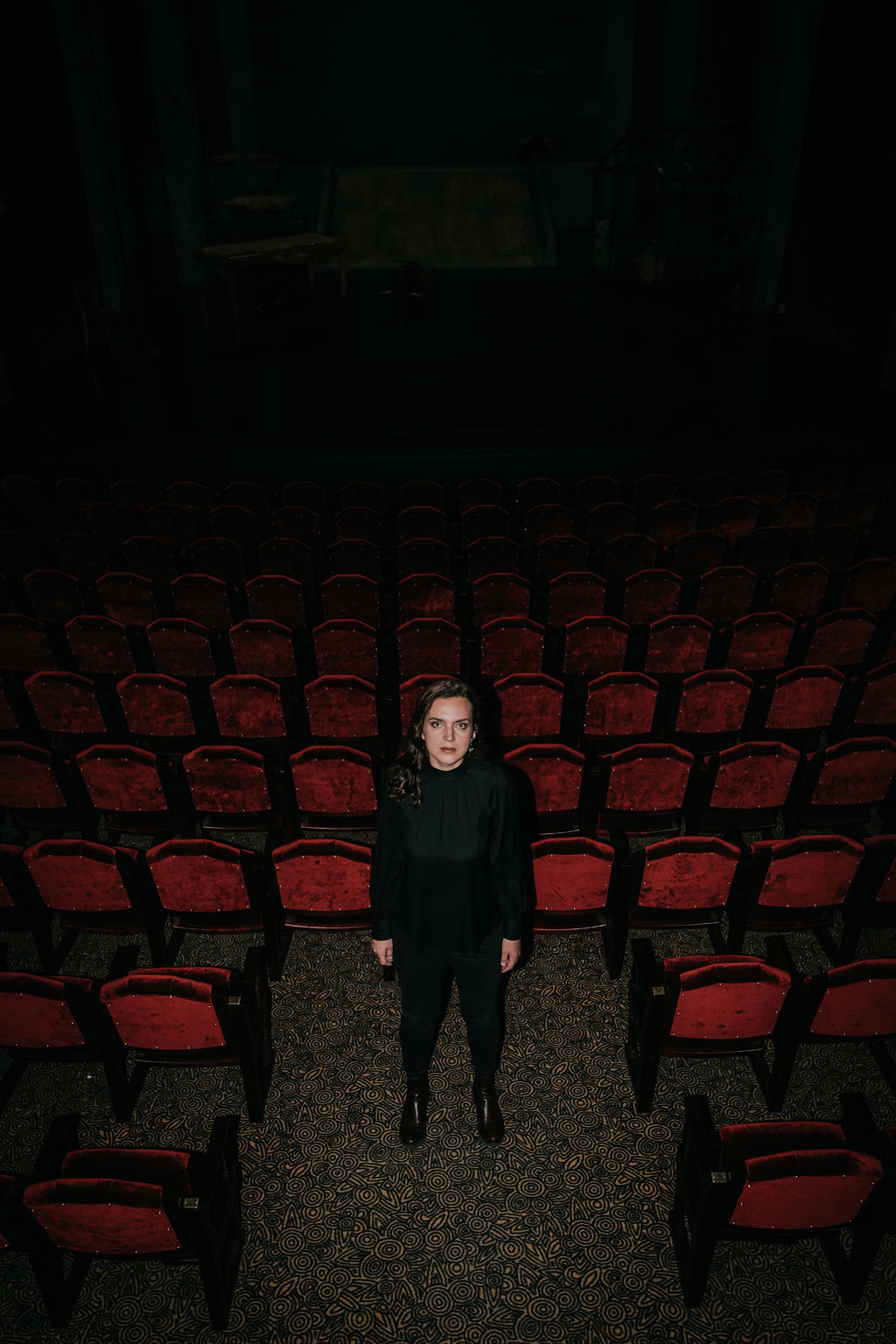
Hello Kirke! I asked ChatGPT: "Who is Kirke Karja?" and got the following answer. Can you confirm or refute it, or would you like to add something today?
Kirke Karja is an Estonian pianist and composer known for contributing to contemporary Estonian music. She has been a solo artist and collaborated with various ensembles and orchestras. Karja has represented Estonia at several international competitions and festivals and has been one of the most active young composers and performers in the Estonian music scene. She has studied at the Estonian Academy of Music and Theatre and pursued further education abroad. Her music is often described as an attempt to combine classical and contemporary elements, with a particular interest in jazz and improvisational music. She has created works in various genres, including chamber, instrumental, and electronic music.
On the whole, that's accurate, though such descriptions apply to many musicians! Maybe the part about participating in competitions needs a bit of clarification – the last competition I took part in was back in 2011 when the International Piano Competition was held in Tallinn. Music competitions are helpful at a certain age; my piano technique was at its best when preparing for those massive, multi-hour academic solo programs. But since I've focused more on composing and working with bands, I haven't had a desire to compete. Composition, after all, is a very personal thing.
Recently, there's been a lot of debate in the media about whether children should participate in competitions and whether it benefits them. It did benefit me, personally. I was learning alongside some very strong pianists, and the competition pushed us forward because no one wanted to be worse than the others. We pushed each other.
So, what kind of life are you living right now? How’s everything going, and what are you currently working on?
I’ve been spending more and more time in Southern Estonia: honestly, I’m a bit tired of Tallinn. The rhythm of a countryside home and small-town life suits me much better. I’m from a small place, and I keep itching to return there. The difference in quality of life is enormous, starting with the clean air! Last week, I was recording in Rome, and I immediately felt terrible from the dust and noise. I never used to mind the grime and mess of big cities, but as soon as fresh tap water, swimming in the lakes and walking in the forest became part of my everyday life again in recent years, city living started feeling more draining.
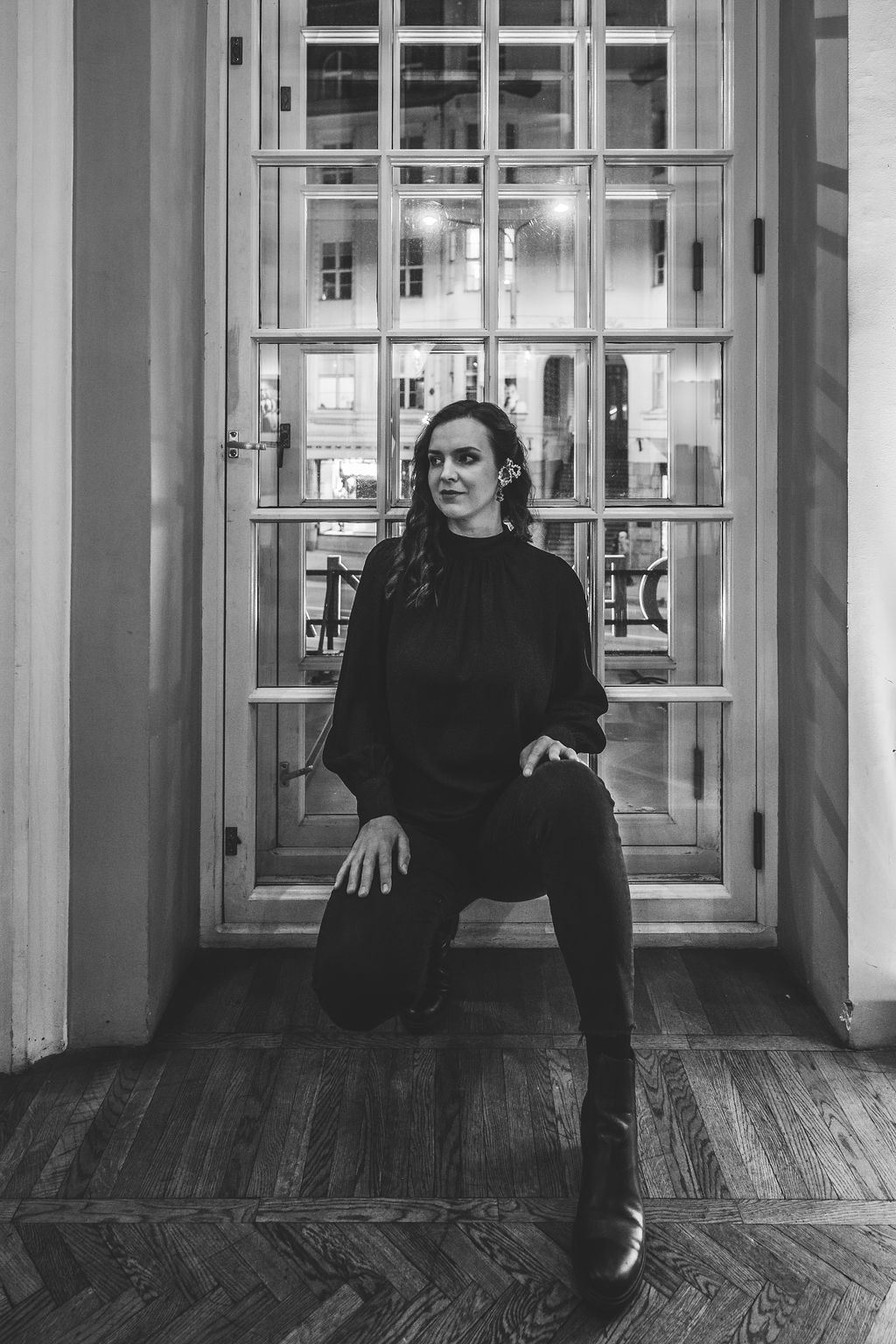
With your performance at Jõulujazz with Verneri Pohjola and Mika Kallio ahead, what have been highlights of this year so far?
The opportunity to perform solo at the KLAVER festival in the Estonia Concert Hall. Also, in 2024, I formed collectives whose core members are based in Helsinki, Berlin, Cologne, or Paris, so I’ve been able to travel to Central Europe for rehearsals and concerts regularly. Of course, that makes me happy because, given my niche, it wouldn’t be possible without an international reach. But I’ve also spent a lot of time alone, hanging around airports and missing home, so every silver lining has its downsides.
Let’s talk about that! You had a solo concert at the KLAVER festival about a month ago, which focused on female pianists this year. KLAVER is a long-running festival, with many top pianists performing there over the years. You performed existing works by other composers and commissioned pieces, along with some of your compositions. Is this currently a popular trend, to highlight female interprets and composers?
For centuries, the scales in this scene have tilted in favour of men. Just look at high school music history textbooks: they're filled with pictures of balding male composers, and then in the last chapters, there's just a couple of words about Kadri Voorand and Maria Faust.
Mastering any instrument at the highest level and staying on that level can be very hard for women who have families. Men often find it easier to smoothly slip away from childcare responsibilities. Luckily, it seems times are changing, and in my circle, more and more parents are sharing the responsibility 50-50. I think this is all incredibly positive because we have so many intelligent and hardworking women who want and deserve to express themselves professionally and whose contributions society desperately needs.
For me, everything related to women and their rights is essential—pay gaps, sexual harassment, unwanted touching, spiking, domestic violence, economic violence, mansplaining—it's all the same horrible stuff that we need to rid ourselves of by any means possible. I believe movements with slogans like "more women on stage!" are helping in their own way.
Women in music: you've been involved in various ensembles, both in the past and currently. Looking at them, I notice that most of the members are men. This is also the case with your upcoming Jõulujazz concert. Why is that?
I've had many bands with other female musicians, but they haven't become my main projects. For example, the ensemble I started, "Kirke Karja + Sireenid", mostly comprises women: there's Anett Tamm, Elina Martinson, Kristin Kalnapenk, and Jana Kütt. However, we haven't performed much because the repertoire is quite conceptual, and the band is large. But I really love the energy of that band, which has a lot of femininity in it, naturally coming through in the music.
Next summer, we're debuting a new all-female band that Anett Tamm and I are leading.
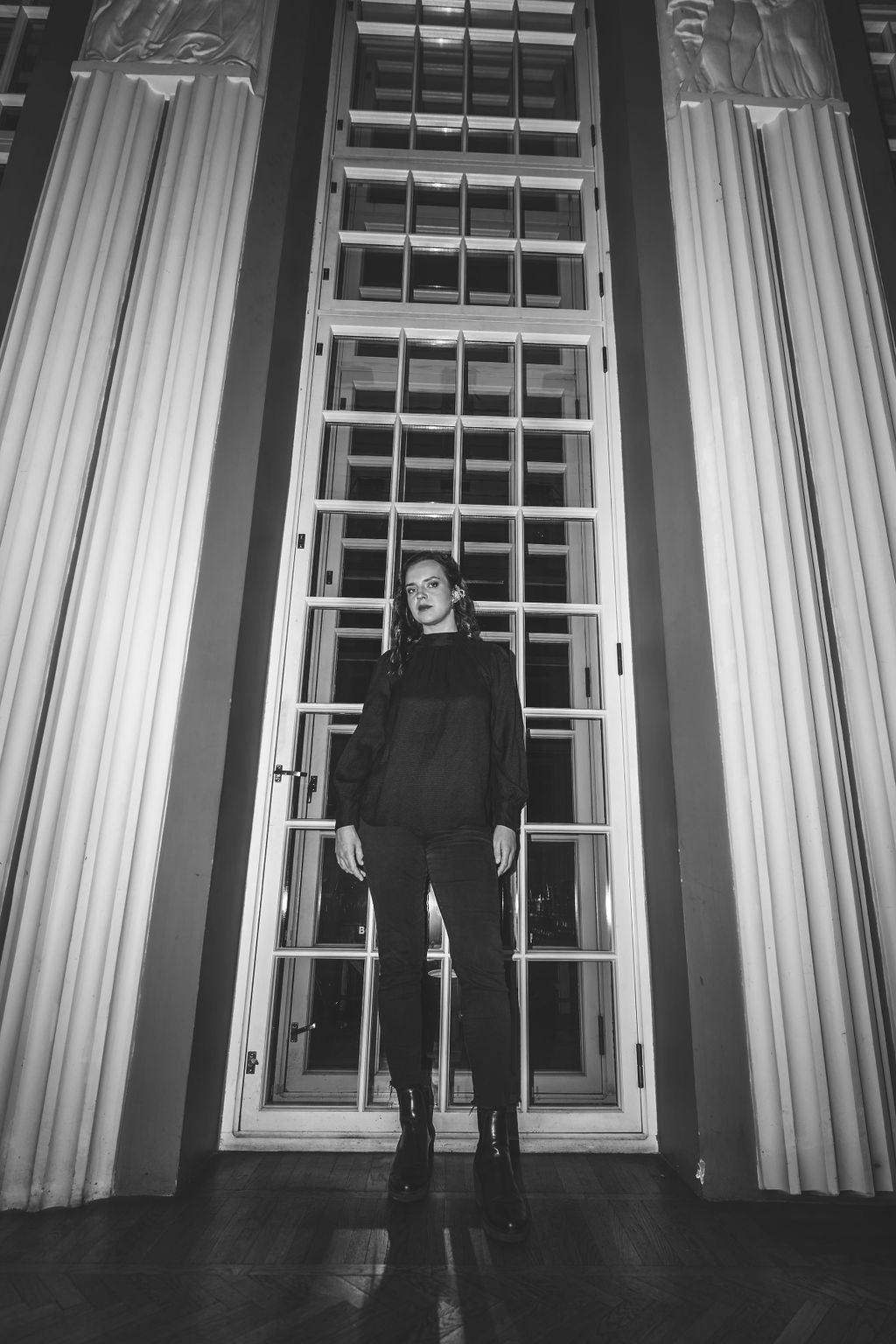
You perform abroad quite a lot, whether with your international trio Karja/Renard/Wandinger or by yourself at various showcase festivals or elsewhere. What does performing in Estonia mean to you? Do you feel like you’re more of an underground figure here, if I can say so?
It’s tough to say. I know I have a fanbase, and thanks to curious journalists and concert organisers, it’s constantly growing. I’d rather stay more underground and continually drift away from the mainstream like a winding river finding its course—but who doesn’t want that? Otherwise, performing in Estonia is very enjoyable. There’s none of that annoying everyday hassle, like hanging around airports or packing suitcases!
How would you describe the Estonian jazz audience?
When my non-musician friends come to a jazz concert, they worry they won’t get it. I try to reassure them: you don’t have to understand everything; I don’t always understand the things I’m playing, either! Understanding isn’t the goal—it’s more about letting the sounds do something to you and just observing. But I do get where they’re coming from. This music can sometimes be such an abstract world, and if the performer doesn’t give the audience any thread to follow, it can leave them helplessly drifting in the open sea.
Gregor Kulla was one of the young composers commissioned to write a piece for you at the KLAVER festival. Gregor recently gave an interview and said that in EMTA, where you also studied, composition continues to play second fiddle. What do you think about that?
I´m a fan of Gregor's and admire his courage to search for answers in places others might not. But more generally, I think anyone who is involved with a certain field can find stuff to be critical about. If there's something to be learned from criticism, then we should listen to it and be grateful tht someone pays attention. In art no one should have no monopoly, and such a broad field as Estonian composition shouldn't be a sacred cow. Nothing will progress if you're just lounging on the couch under a warm, comfortable blanket and eating chocolate.
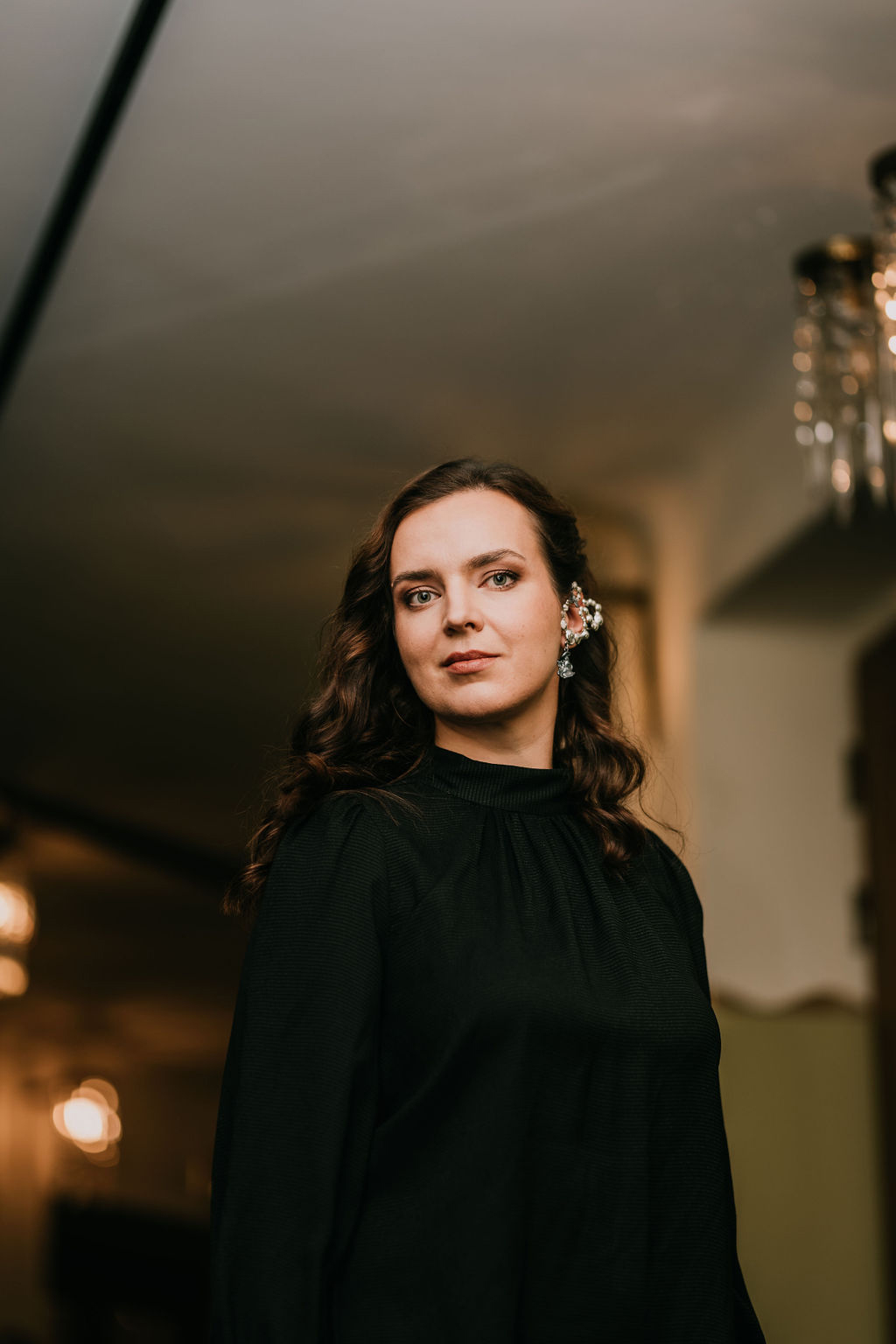
Who did little Kirke want to be when she grew up?
A composer, pianist, actress, or director! Always something in the cultural realm.
You have said, that while results are important in life, career in music teaches you to appreciate the process. Do you enjoy the creative process? What does that process look like for you?
The creative process is full of small victories, like when I successfully orchestrate a section or come up with an exciting texture. There’s also a lot of searching, which is fun, but not so much when I haven’t been able to create anything interesting for a while and deadlines are closing in. Notating music is very tedious for me, but it’s something I have to do. My thoughts need to be somehow communicated to the performers. For larger projects, I usually take some time alone and head to my country home.
Let’s talk about another world-renowned pianist, Käbi Laretei. Right now, you’re playing the role of young Laretei as a guest actress in the play "Solist" at the Estonian Drama Theatre. What does Käbi Laretei’s career as a pianist say to you? Is her story in any way an inspiration for you?
We’ve performed this play over 120 times, and since I never leave the stage, I also have my fellow actors’ lines in my head. People from very different backgrounds, who have seen "Solist", have discovered something meaningful for themselves. It makes the audience reflect on their decisions and think about the state of their own lives, whether it’s time for a change or whether they should go and ask someone for forgiveness. It’s not an easy watch, though there’s a lot of humour as well.
Käbi Laretei was a phenomenon in her own right. She built her career as a pianist during a time when the role of women in society was very different from today, with the added challenges of exile, complex relationships, and more. Being a musician is much easier today, and I’ve often thought it would be foolish not to take advantage of the fact that so many women before me have cleared the way, hacking through the underbrush with machetes so that I can walk there freely. And my role now is to do something for the next generation of women so they don’t have to deal with the same struggles we are still facing.
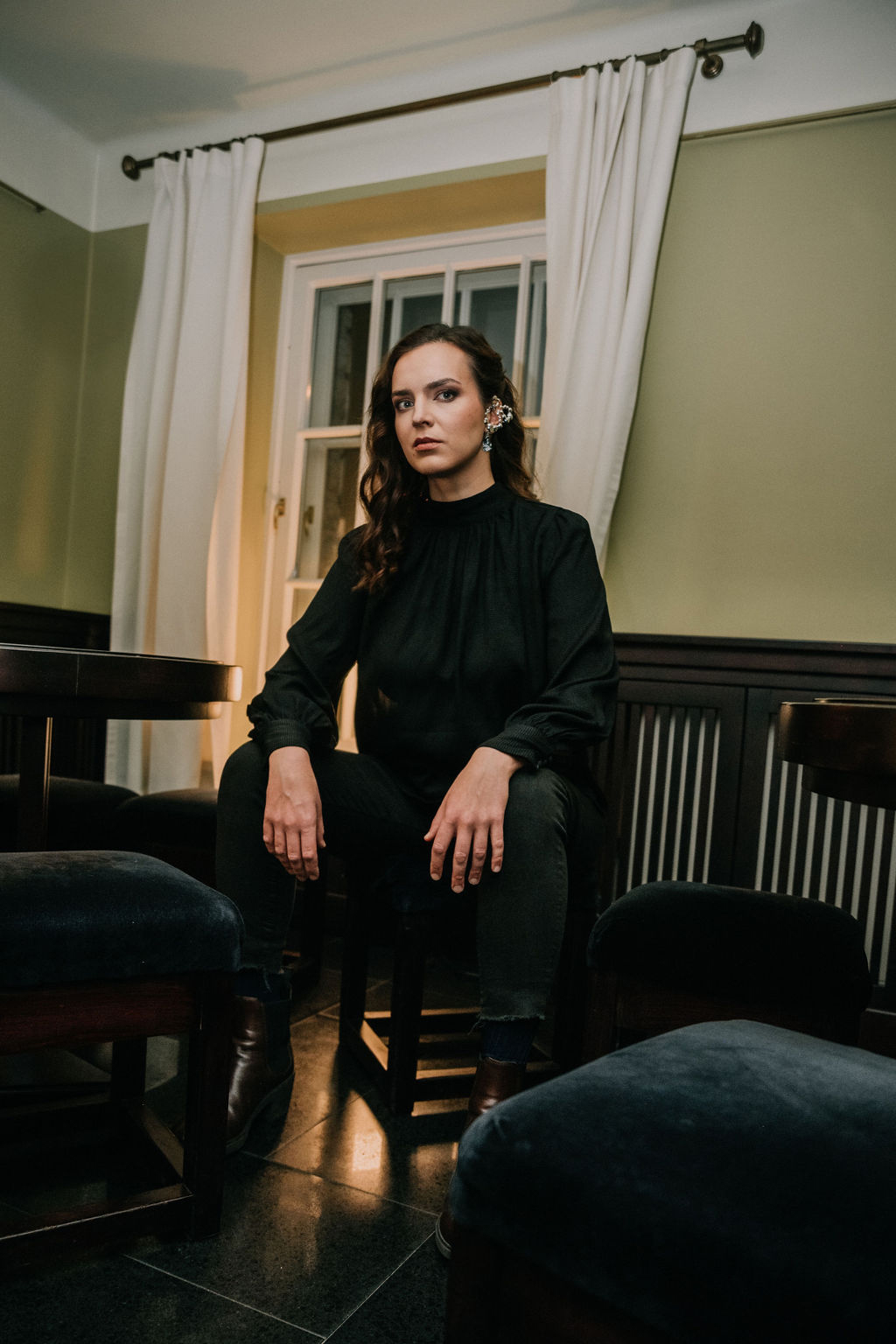
What are Your dream stages? Carnegie Hall and Royal Festival Hall, concert halls where Käbi Laretei also had the chance to perform?
All the halls and festival stages I dreamed of 10 years ago became reality or will become in 2025! But they’re not as important to me as they once were. Now, I dream about collaborations with interesting musicians; the specific venue isn’t as crucial.
Let’s come back to the beginning. Why should people come to yours, Verneri Pohjola’s, and Mika Kallio’s concert at Jõulujazz?
I’ve been a fan of the Pohjola and Kallio duo for years, and it was such a joyful day for me when Verneri invited me to perform with them. We’ve played together in different ensembles before, but this time, we wanted to create something entirely different. We’ve already performed this program several times in Finland over the summer, and we shared some wonderful moments. These are the kinds of moments I pursue through music.
Who else would you like to highlight from the Jõulujazz program?
On November 30th, Anett Tamm will perform at Kumu with David Chevallier’s trio. Anett is a very dear friend and cre ative partner to me, and by then, she’ll have been touring Europe with this program for about a month. I’m really excited for their concert. She’s just such a fantastic artist. On December 4th, Kit Downes, one of my favourites, will perform at Niguliste Church. Unfortunately, I’ll be in Helsinki for a concert at the same time, so I won’t be able to attend. And then, of course, I’m also part of the Frank Zappa - such an extraordinary man - tribute concert on December 15th! I’ve been arranging some of the band’s songs and will also be performing.
Location: Eesti Draamateater
Photographer: Greete Raudsepp
Make up: Lore Sõerunurk
Jewellery: Claudia Lepik
